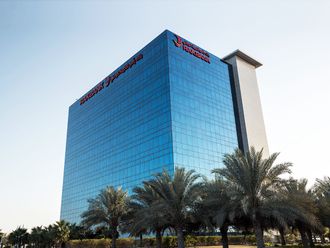
Clever analysis of data and tailored, personalised rewards are increasingly underpinning loyalty programmes in the UAE as businesses in a range of industries — including oil and gas, finance, retail and telecoms — leverage technology to boost customer engagement and satisfaction. Suffice to say, loyalty programmes have come a long way from a free coffee as a reward for collecting eight stamps on a card.
“For loyalty programmes to stay ahead of competition, they must provide multiple channels via which customers can redeem services and points, understand and implement the growing importance of data management, all of which need the strong support of technology,” says Niranj Sangal, Group Chief Executive of OMA Emirates Group, a UAE payment services company.
National statistics
Loyalty programmes have surged in popularity in the UAE over the past couple of years, according to research by Collinson Group, which specialises in analysing consumer behaviour. This is in sharp contrast to other markets where consumer fatigue has resulted in a 20 per cent decline in loyalty membership globally.
Collinson’s research found that among the UAE’s affluent middle class — considered the country’s top 10-15 per cent of earners — 35 per cent of respondents are now members of hotel programmes, up from 8 per cent in 2014; 43 per cent hold frequent flyer memberships, an increase from 36 per cent; and 39 per cent are involved in banking programmes, up from 25 per cent.
This indicates that “brands are meeting customer expectations to a degree and building meaningful relationships with their customers”, says Christopher Evans, Director of Collinson Group.
Encouragingly for businesses offering loyalty schemes, UAE residents are among the most willing globally to share data — in the expectation that they will be compensated accordingly. The 2015 Aimia Global Loyalty Lens report, which surveyed more than 20,000 consumers in 11 markets including the UAE, highlighted how consumers were willing to share information with brands in return for more personalised offers and services.
“The data exchange economy has arrived,” says Paul Lacey, Middle East Managing Director at Aimia, a marketing and loyalty analytics company. “Customers are willing to share their personal information for a fair return.”
By analysing information, brands can build a more rounded understanding of their customers, who increasingly want tailored offers and rewards — rather than being spammed by generic promotions.
Sixty-five per cent of UAE respondents said they would share personal information to receive better offers and services. However, only 10 per cent said they had actually received better services after sharing personal details. “This is a golden moment for companies to build meaningful relationships with their customers, but this opportunity will quickly disappear if companies fail to respond appropriately,” says Lacey.
Flying high
Customers also want loyalty programmes that are easy to use — especially when it comes to redeeming points. Many airlines have done well in this regard, says
Sanjit Gill, General Manager for the Middle East at ICLP, a loyalty marketing agency.
“The airline industry provides numerous examples of enhanced customer experiences through the adoption of new technologies,” explains Gill. He cites the example of online check-in options that offer redemption of points and the chance to upgrade on flights, which have all contributed to an improved overall customer experience.
After Air France KLM Flying Blue loyalty programme adopted a new system developed by ICLP allowing customers to redeem their points against a tailored inventory of the latest rewards, the airline saw a 91 per cent increase in miles redeemed and more than doubled membership across 24 new countries.
Bespoke solutions
Banks have also done well by launching mobile apps that gather information to offer tailored promotions.
Mobile apps “quickly caught the fancy of banks that are able to reach out with a reward offering to a much larger audience”, says Arnaz Ashraf, Partner at Brains at Work, a marketing company based in Dubai.
“Apps that can be downloaded allow customer the right to view an offer and access it as per their requirement or choice.”
Smartphone apps, of course, are particularly important in the UAE, which has one of the highest smartphone penetrations globally, currently estimated at 80.6 per cent of the population and expected to rise to 82.8 per cent by 2019, according to the Global Media Intelligence report.
Obtaining a consumer’s loyalty to the brand is only as good as a retailer’s ability to keep their data secure. The UAE is doing well in keeping data secure — but less so in regard to cross-selling, suggests Ashraf.
“Financial institutions have come a long way in the UAE in being able to allow for safety in online transactions by requiring the customer to interact with one-time passwords that are sent exclusively via SMS to the mobile for online transactions,” she says. However, “there are numerous agencies that sell databases”.
“The challenge is to target the right audience with the right offers while holding on to business databases as sacrosanct so that the quality of customer data is valuable and the offers that are received have a respectable conversion rate, which is not the case today.”











